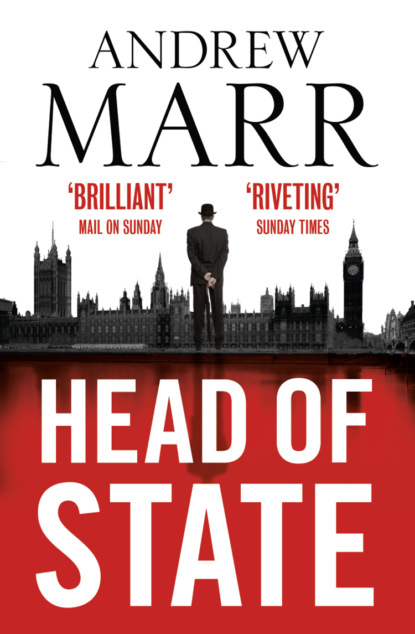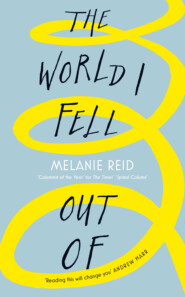По всем вопросам обращайтесь на: info@litportal.ru
(©) 2003-2024.
✖
Head of State: The Bestselling Brexit Thriller
Автор
Год написания книги
2018
Настройки чтения
Размер шрифта
Высота строк
Поля
Lucien was not on the run from his father. That level of exertion would have appalled him. He was, rather, on a gentle jog from adult responsibility, and as he continued up St James’s Street he flattered himself that, in that respect at least, he had been doing rather well. But then he had tripped over Jen Lewis, and had fallen, hurtling head-down, parachute-free, in love.
Mothers and Daughters (#ulink_95f827e7-2d93-54cb-9a1a-5c5aa1c83fad)
On the face of it – and hers was an ivory, oval face, offset by a sensual, challenging mouth – Jennifer Lewis’s background could hardly have been more different. She had been brought up by a strict aunt in an old Devon rectory, and had attended the Royal Girls’ Academy outside Exeter. There she had appeared gloriously normal. But Jennifer’s cross, the painful burden chafing her slim shoulders, had always been her mother. Myfanwy Davies-Jones, a Welsh poetess and novelist with a cloud of yellow hair and a scarlet reputation, had arrived in the King’s Road in July 1963, not quite straight from her pit-village school, and had thrown herself headfirst into West London society during the most exhilarating and self-indulgent years those dirty terraced streets and dusty parks had enjoyed since the Second World War.
She attracted the rich and the dangerous – men such as Lord Croaker, the asset-stripper and zoo-owner; and the right-wing journalist and politician Sir Rufus Panzer. Way back, Panzer had been a communist, even volunteering as a machine-gunner in a red corps during the Spanish Civil War. In his sixties he had been a lean and extreme supporter of the rising Tory right, though he was later rejected by Margaret Thatcher: ‘Brilliant man, but a little too much gleam in the eye.’
After half a dozen relationships with such wild characters, diluted by the occasional artiste, Myfanwy’s first novel was acclaimed as the satirical roman à clef swinging London had been waiting for. Sidetracked from her new celebrity by a doe-eyed performance poet from Liverpool, she gave birth to a son, quickly palmed off to a couple who for some reason wished to adopt him. She would have preferred an abortion, she frankly admitted to her friends, but had been too disorganised, lazy, and perhaps frightened, to go through with it.
The hospital long remembered Myfanwy Lewis – for this episode she had chosen to revert temporarily to her real name, rather than the one by which she was known to her public. Its nurses had never before had to deal with a strong aroma of marijuana smoke in the maternity wing, let alone a constant stream of arguing and backslapping visitors in leather jackets and kaftans who stayed late into the night playing Joan Baez songs. Myfanwy had treated the birth pains and what they brought forth as a baffling surprise, unpleasant enough at the time, but soon afterwards useful material for one of her most successful books.
Then, many years later, when Myfanwy was on the very brink of the menopause, she had swanned back to the hospital, still striking, still attended by adoring young men, hugely pregnant and hugely irritated at this second unexpected turn of events. Thus arrived the small and cross Zuleika Maria-Guadeloupe Attracta Gonne Lewis.
In later years, the unwanted Jen – as she preferred to be called – had never thrown her mother’s evident lack of interest, or even maternal instinct, back at her. It would have been as futile as complaining to a bird about its song. As a baby, as a toddler, and as a striking, solemn-faced young girl, she had been passed from friend to relative to acquaintance. ‘Who’s on Jenny Wren duty tonight?’ literary editors would ask publishers’ secretaries. Jen remembered only a haze of kindly, feckless faces, wooden floors and Turkish carpets in colourfully furnished flats and houses across West London. From time to time Mother would appear briefly, brandish her like a prize at a party or barbecue, then disappear again, after flinging her a bouquet of incomprehensibly flowery language and a warm, nauseatingly perfumed farewell embrace. Jen still recalled the moist, sickly, lipsticked mouth and the wet, lolling tongue, imbued with tobacco and wine, with a shudder.
In many other families, both Jen and her mother would have got over all this, and thrived. Jen would have turned her early years into a funny late-night story for the benefit of boyfriends, and become increasingly admiring of her mother’s genuine, exotic literary gift, and even her famous face, like that of a fine-boned elf in a wig, which had popped up so often, sketched or photographed, on the covers of extinct magazines and Sunday Times colour supplements. Myfanwy, meanwhile, would have come to appreciate her daughter’s precocious intelligence and her looks, which echoed her own, and woven her childish triumphs, pearls of wisdom and delightful mistakes into brittle newspaper columns. Eventually, the two would have become friends.
It never happened like that. Jennifer was, at least, spared those newspaper columns. She had the wrong temperament to understand her mother. Temperament is fate, and Jen was temperamentally literal rather than literary, almost male in her self-absorbed preference for order and systems. She hated sloppiness, and the slopping around of personal secrets. And when she eventually read her mother’s novels – Seven Sermons for Secular Sinners, or Leprosy and the Ladies’ Room – she found them emotionally incontinent, plotless and frankly embarrassing. Myfanwy’s love affairs, described with an earthy, sensuous detail that in those days was very rare from a woman, had made her rich. First editions of her early books now changed hands for thousands of pounds, while the paperbacks could be found, squeezed between Jackie Collins and Margaret Drabble, on bookshelves across North London. To her daughter, this literary celebrity was incomprehensible.
Jen’s life only began to make sense to herself when, aged eleven, she was dispatched from London to go and live with her mother’s sister, a stern, quietly religious woman married to a dentist in Devon. Hundreds of miles away from the nearest literary party, she enjoyed the clipped lawn and the piano lessons in a large, oak-timbered room that smelled of old fires and damp Victorian sofas. She loved her school, the biology and chemistry lessons in particular, and made a group of friends, quiet, serious girls like herself. She collected stamps, butterflies and even football cards. For days – even weeks – at a time she felt herself happy.
Oxford was another fresh start, a place of wonders. A natural scientist, in both senses, Jenny found herself being pulled towards politics during the short-lived Johnson administration. Repelled by the beery and yobbish advances of young men who proclaimed themselves socialists, or even revolutionaries – and not simply because her political heroine Margaret Thatcher had herself been a scientist – she joined the Conservative Party. Jen believed in reason and efficiency. She didn’t much care about the European Union one way or the other – that would come later. Her politics did not make her universally popular. But, confronted by the self-righteous arguments of the college lefties, she prided herself on never losing her temper, and on hitting back with carefully memorised figures and quotations. She was quickly spotted.
In her second year Jen switched from ‘nat sci’ to PPE, and became an active Tory student, elbowing aside moist-palmed, stammering young men as she rose through the ranks of the Union, until in her final year she was elected its president. Nothing could have mortified her mother more. In college she was known universally as ‘June’, which she had assumed was the result of a mishearing, until one evening in the student bar she overheard a girl explaining to her friend, ‘No, not Jen. June – cold and bright.’ When her mother, a regular in the letters pages of the Observer and a prominent campaigner for the arts, came to speak at the Union, Jen did not attend. By then she had led the winning side in many Union debates herself.
So it came about that after university the girl who had assumed that she would spend her adult life as a laboratory assistant or a research scientist went instead to work at Conservative Central Office. In that boys’ world she was recognised as brilliant but difficult. She had spent a happy year working for the man – now much heavier and with silver through his wiry hair – who would become prime minister. But a disastrous love affair with a young, married MP who managed to keep his seat despite his exposure in the press, ended in her leaving that job both sadder and wiser.
It was then that she was snapped up by Olivia Kite, who recognised her brilliance and made her the number-cruncher and analyst-in-chief for the increasingly powerful Eurosceptic group inside the parliamentary party. Slim, pale, and with her mother’s shining hair, Jennifer Lewis continued to be much admired – though mostly from a distance.
Sex and Marriage (#ulink_69f268c3-d11d-52c4-96b9-d3eabc757c2c)
Who could ever have predicted that cold, bright June Lewis and Lucien McBryde, the tousled, coke-snorting lobby hack who had once been thrown off the prime minister’s battle bus, having been caught in the toilet, red-eyed, with crusty nostrils, would experience such an instant and intense mutual attraction? He was dishevelled, she meticulously shevelled. He disreputable, she shinily reputable. He a dark and ragged squiggle of a man, she as beautifully balanced as a complex quadratic equation. That both of them felt the same inside, both having been ruined by a selfish and indifferent parent, was something few people could have guessed. To a friend, Jen had explained: ‘He was the last person on earth I was ever likely to fall for. That’s why it happened.’
The sex, when they eventually got round to it, was intense and revelatory. (The shift from the time when people ‘had’ each other to when they ‘did’ each other had been the subject of a conversation between Ken Cooper and Robson McBryde.) In bed Jen experienced the only area of his life in which Lucien was not selfish. Two bodies became one. Away from bed, their friends said admiringly and jealously, each became more engaging and lovable.
Perhaps the happiest day that either Jen or Lucien would know in their lives centred around a lunch in a chaotic and cheerful Italian restaurant by Victoria station. No wedding, but a wine-and-pasta-fuelled meeting of two writing tribes, it was hosted in their honour by Robson McBryde. Racy literature and fervid political journalism acknowledged each other, and made dignified bows. Jen’s mother performed many of her most successful anecdotes, and was grudgingly admired by the wary elderly journalist, while their two children, both secure and both feeling that they knew who they were at last, looked on.
‘Luce, let’s never ever have a wedding anniversary,’ Jen had said as they teetered back up the street towards their respective offices. ‘Let’s celebrate this date as our special day, and come back here for years and years.’
Lucien had said nothing in reply. For once, he couldn’t speak. He was still trying to come to terms with this strange new feeling – not drunkenness, not ‘a rush’, but something calmer and more delicately coloured: perhaps it was happiness.
But nothing happy ever lasts. Just two months after the pair of them had been bound together, unable to keep their hands off each other, driven to nuzzle in public places and to stifle their conversations with kisses, London began one of her amazing changes of costume. For a few weeks her temperature rose to that of Paris, and even Rome. Magnesium glares splashed across her glass towers. Down in her shaded alleys and half-lit canyons, her citizens shucked off their grey woollens and padded jackets. Torsos, suspiciously tanned or thickly hairy, were openly displayed. Unhappy cats found themselves sharing urban gardens with pot-planters and barbecue-lighters. Damp pavements, now dried, hosted families of chairs and little tables, and brightly-coloured young people sat outside pubs and restaurants. The smells of charcoaling meat and fragrant tobacco filled the air. Dogs gambolled deliriously in the public parks. Annually, the people of London became inmates released from prison into a brighter world of possibilities. And amid all this chirruping and fluttering, Lucien and Jennifer had a terrible, terminal row. Like most of the worst rows, it seemed to blow up out of nothing at all. Yet it ripped their oneness apart forever.
Lucien had casually mentioned that an ex-girlfriend had asked him to supper. For no particular reason, he had never told Jen about this girl before. Jen froze, then snapped at him. Lucien went cold, and sneered at her. In an instant Jen found herself looking at him differently. Who was he, this stranger? Her face zipped shut, her melting eyes turned to ice, and when Lucien finally brought himself to look at her properly after a long silence, he found he barely recognised her either.
In the bitter public argument that followed, both spat out plosives and fricatives like shrapnel. Each, suddenly feeling sick inside, had been in subconscious training for this combat of ugly words, this tournament of misery, for weeks. Never conversationalists, they now discovered in one another a genius for invective. After twenty minutes they were standing silent and stiff-legged, like mannequins, at the Trafalgar Square end of Whitehall, before turning and hobbling off in opposite directions. By the time evening fell Jennifer had taken her things out of Lucien’s Notting Hill basement flat, and gathered a group of sympathetic friends to empty wine bottles and shred his already tattered reputation. His addictive personality had been too much for Jen. It had been slowly pushing the walls of her ordered life apart. Now she tugged them firmly back together again.
Lucien had been damaged the more severely. In the days that followed he realised that the first person who had ever made him feel like a fully functioning adult human being had walked away. He tried to comfort himself with the memories of earlier lovers and the promise of new erotic freedom, but felt nothing stirring at all, except irrepressible self-disgust. He thought about throwing himself off Hammersmith Bridge. But he was not a jumper.
Perhaps the break-up was inevitable, was even for the best. Had Lucien and Jennifer stayed together and had children, they would have passed their self-destructive traits down to the next generation. The French say that the children of lovers are orphans.
A few days later, Lucien’s father was in his local when he noticed that he was pouring his pint of bitter directly down the trouser leg of the man sitting to his left.
‘Oof. Groourrgh,’ protested the man. ‘Hoi, hoi.’ Nor did he say this in a friendly way. Robson tried to right his glass, but there was no strength in his wrist, and the rest of the liquid gurgled onto the man’s crotch. He said ‘Hoi,’ again, sounding as though he meant it. Robson tried to explain and apologise, but no sound came from his mouth. Then he suddenly slid backwards off his bar stool, and landed face-up on the floor.
He was still feeling an overwhelming sense of irritation when the two ambulancemen arrived. One said to the other, ‘Shall we blue this one?’ The other replied, ‘God yes, we’d better blue him.’ Robson rather liked the sound of that – it made him feel important – but the stroke killed him even as the flashing and wailing ambulance pulled away from the pub.
The funeral had taken place at a crematorium in North London, attended by a ragged platoon of newspaper editors, including a stunned and bewildered-looking Ken Cooper, as well as famous foreign correspondents and columnists from the less popular papers. The rain cascaded down on the backs and hats of some two hundred people who could not be fitted into the chapel. Lucien was not there. He spent the day in his flat, emptying a bottle of his father’s favourite malt whisky, and sobbing.
He survived the weeks following his father’s death by drowning himself in the large, wet eyes of a series of sympathetic girls, and managed to keep working by snuffling fashionable stimulants. But his timekeeping, as Cooper noticed morosely, became ever more erratic.
Library Game (#ulink_2d6d557b-0711-57fa-a76c-0e5548e21b95)
That Saturday, idly admiring the forthright, no-nonsense names of the old shopkeepers on the street – Lobb for boots, Lock for hats, winking, scarlet Berry Bros & Rudd for booze, Hockney for tobacco – Lucien McBryde turned right just before the Economist building, and wavered his way towards the north-west corner of St James’s Square, and a narrow building with tall windows that was the nearest thing he had to a spiritual home. This was the London Library, a private-subscription affair founded by whiskered and idealistic Victorians, lifelong membership of which had been a gift from his father during a brief phase when he’d showed some promise as a writer. Its collection was unsurpassed by that of any other private institution. Its dark reading room, smelling of old books and old men, was as calming a place as could be found in this square half-mile of clubland.
But that was not why Lucien McBryde used the building. Well-versed in the dangers of email, texting and mobile phones, he had made the library, in effect, his private communications hub. By this time on a Saturday it would normally have closed its doors. But tonight the annual party was in full swing, and McBryde lurched his way inside. For once he was not looking for another drink, free or otherwise. He was here, as usual, to send a message.
When pursuing a woman, or dealing with a particularly private source of information, McBryde avoided all the modern communications systems, which were vulnerable to being spied on by everyone from spotty youths in the pay of rival newspapers to, so the Guardian said, GCHQ, the Americans and probably the Chinese as well. He passed his most sensitive messages on by simply texting its recipient the title and author of a particular book, and leaving an old-fashioned handwritten note inside the London Library’s copy of it. All the girl, or civil servant, or junior minister, had to do then was to go to the narrow, metal-grilled stacks, pull out the book and retrieve the message. They would then repeat the process, texting him the location of his own ‘book-note’. So far, all parties had found this method entirely secure.
Others cottoned on, of course, and the waiting list for membership of the London Library had jumped remarkably. The venerable stacks began to reek of passion and secret liaisons. Many of those apparent bibliophiles fingering a history of the early French kings with an affectedly vague expression, or rubbing their palms along an anatomical sketchbook, were in reality trying to hunt down a passionate letter from a married man or woman, or a proposition for an indecent or politically sensitive rendezvous.
The crucial thing about the London Library postal service was that the messages had to be left in books which were in no danger of being taken out by the wrong person – some wandering visitor who was unaware of the system. They had to be secreted in books about thoroughly dull topics, books no one in their right mind would ever want to open. McBryde had experimented with obscure Swedish philologists, unknown Victorian novelists, and dense tomes of twentieth-century structural Marxism, but had finally settled on the works of the journalist and sometime historian Dominic Sandbrook. Sandbrook had been the unwitting Pandar for McBryde’s life-changing love affair; at last, flickers of energy had pulsed between his pages.
Tonight Lucien was on his way to deliver a message to Jennifer, but one that had little to do with romance, although just writing her name had given his heart a sickening lurch. He swiped his membership card and entered the library, then went upstairs to the History of England section, where he took down the latest of Sandbrook’s tomes, an eight-hundred-page history of Britain from 1982 to 1983. Into it, he slipped his note.
He felt clammy and weak as he made his way back out into St James’s Square, shouldering past the party guests – Sir Tom Stoppard was deep in conversation with Andrew Wilson. Once he was outside he checked his phone, which was full of increasingly terse messages from the office. He scrolled through them. Then deleted them. There was absolutely no point in being a reporter if you had to attend meetings or communicate with your bosses.
McBryde was planning a long – a very long – night. Even so, he remained just slightly more journalist than dipsomaniac. The tip he was passing on to Jennifer had come from Alois Haydn, the notorious Svengali of Number 10. Haydn knew everyone in London. He was London. His deepest secret was McBryde’s last romantic gift to Jen. Passing it on to her was a stroke of genius … Or so McBryde thought. But ever since their meeting a question had been nagging away at him. Why had that famously manipulative little man sought him out? He owed him no favours. Haydn?
A good journalist does not simply receive what is given; he always asks why he was given it. Loitering in a nearby pub over a whisky and soda, McBryde concentrated hard as he began to look his gift horse closely in the mouth. Alois Haydn only ever looked out for Alois Haydn. Everyone knew that. But the story he’d told him was one that put Haydn himself in a bad light – or would, one day. So if it wasn’t about power, what else could it be about? Was it money?
For all the wrong reasons – involving Soho clubs and drug dealers – Lucien had made some quite good connections in the murkier fringes of the City. He texted Charmian Locke, a school friend from many years ago who he had heard was currently working at one of the larger merchant banks, and arranged a clandestine meeting for the following evening. Both would probably be pretty pissed by then, Lucien thought, but he prided himself on being able to hold his drink. He would remember everything that was said.
3 (#ulink_b7b29c30-67eb-5ccc-b0af-3f53eb73244b)
Who is Alois Haydn? (#ulink_0b16eaf2-7d7e-5c15-a38b-be9c757cfefd)
The cool of the Monday morning had lifted. A cloudless sky, and eye-scorching brightness, reflected from top-floor windows across the capital. A body had been deposited in the mortuary reserved for suspicious deaths. The pavement had already been cleaned, the police tape removed, and commuters were now passing heedlessly over the spot at which a young journalist had died. A mile or so to the west, almost equally invisible, a perfectly groomed little man was gliding purposefully along Piccadilly, his tiny feet barely touching the pavement.
It was once said of Josef Stalin, no less, that during his rise to power he was like a grey blur, always in the background, never quite in focus. Alois Haydn had the same talent. Somehow, one never looked at him closely. No matter how hard you tried, you could never remember his face, even after a difficult meeting. If he ever threw a shadow, it was a thin, vaporous one. This morning he was on his way to an important meeting with the executive members of a somewhat mysterious company, Professional Logistical Services, or ‘PLS’.
Alois Haydn’s name had been on the lists of the Most Influential Britons for more than a decade. All the political parties paid him court. His summer parties in Oxfordshire attracted ministers, celebrities and intellectuals alike. By the lake and in the marquee, prize-winning novelists and rising politicians mingled: the Lucasian professor could be found deep in conversation with the Eton-educated star of a hit American TV series; Prince Andrew and the crop-haired, boyish editor of the Guardian might be seen sitting at the same table. To receive one’s invitation, a month ahead of the event, had become part of Britain’s unofficial honours system, on a par with appearing on Desert Island Discs, being lampooned on the cover of Private Eye or speaking at Davos. Ordinary snappers clustered at the gate to capture the arrivals; a royal-connected fashion photographer took informal pictures inside the grounds.
Yet the host, Alois Haydn, was rarely photographed. Gatsby-like, he was little more than a linen suit glimpsed in the background shadows. And this year, to widespread disappointment, the party had been cancelled. Haydn had moved his home from the Cotswolds, rural heartland of the English establishment, to the Essex coast, on the edge of the island, where he was building a new house. The symbolism was much commented on.
Having bought Rocks Point, an elegant Victorian seaside mansion perched on a spit of sandy soil, Haydn had caused local uproar by demolishing the whole building, from its brick turrets and fancy battlements to its sprawling stables and wrought-iron greenhouses. In its place there had arisen a bleak outcrop of cubes, pyramids and mushrooms, as if a shoddily constructed alien spacecraft had crash landed on the site. Intriguingly, it was just a few miles from Olivia Kite’s Danskin House.
There was a lot of snooping. Mini-drones, tiny helicopters equipped with cameras and microphones, had just begun to be used by the mainstream media. Wildfowling in the marshes had long been a local tradition, so Haydn invited friends from London, county types and shadowy Eastern Europeans alike, for the shooting. Again and again they brought down the drones. Website owners were outraged. Lawyers rubbed their hands.









